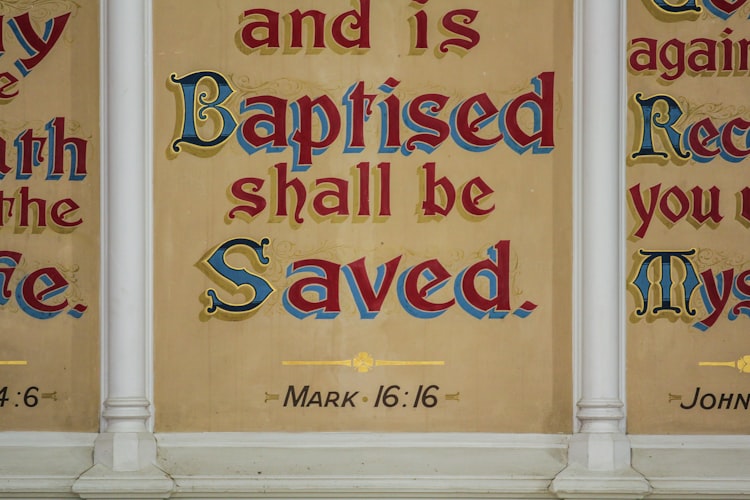Did it make a difference?
(Easter Week Table Church Newsletter)
Around Holy Week, that's a question I often find myself thinking about. Each year in the church (for the past 1,989 years, to be precise), we retell the stories of Jesus turning over tables, washing feet, being betrayed and abandoned, being nailed to a cross, unlocking the gates of hell, and launching the new creation through His resurrection.
Beautiful stories, no doubt. But any casual glance at a newspaper, infinite-scroll feed, or cable news network will tell you that the death and supposed resurrection of a Man who lived in some backwater Roman province two millennia ago cannot possibly mean anything for our lives today. Death and famine and war and pandemics rage on. Anxiety and depression are on the rise. The meaning of life is not, in fact, 42, and still seems to evade our understanding. So, obviously, the fairytale stories of a ragtag group of poor Jewish religious leaders about a dead-man-alive-again have nothing to do with our lives today.
It's no surprise that I'm prone to doubt that assumption. I have a "Rev" in front of my name and an "MDiv" after it. Around Easter, I also find myself thinking about Upton Sinclair's quip, "It is difficult to get a man to understand something when his salary depends on his not understanding it." Throwing up my hands, declaring this whole Jesus movement pointless, and walking away would be costly for me, to say the least.
On the other hand, I've experienced my fair share of pain, loss, and grief. Of (biological) parents, grandparents, a brother, coworkers, and friends. I've been on the painful end of the metaphorical whips that religious folks can tend to bear. And I've had glimpses of careers and salaries that would be—at least by some standards—far more "successful" than what I've got right now.
And yet I still think there's something to this Jesus thing.
Not to mention my "suffering" pales in comparison to those suffering throughout the centuries who have been persecuted or martyred due to their faith. Or those whose lives have been pushed to the brink by the greedy and powerful. And yet, despite no miraculous rescues, no wondrous divine hand scooping them up from their hardships, those folks still managed to keep believing.
I also think of what John Green says about the nature of news: "Bad news usually happens all at once, whereas good news usually happens slowly.” It's easy—and tempting—to see and focus on the bad news that happens all at once and to use that as ammo against the hope the resurrection of Jesus offers.
It's far more difficult—but, I would argue, worthwhile—to see the Good News (euangelion) that's been happening slowly, in part, because of generations of faithful Jesus followers who saw the Resurrection, the launching of a New Creation, and decided to take action in line with the hope it offered. Adoption and fostering, hospitals and care for the elderly, the abolition of slavery, human and civil rights, even (believe it or not) feminism and LGBTQIA+ rights movements all share a common origin in the Christian tradition.
All that to say, I think the resurrection of Jesus still has implications for our life today; is still worth pondering; is still worth celebrating.
So take these 500 or so odd words as an invitation to, at least for an hour on Sunday, set aside our collective cynicism and trauma and consider how the resurrection of a Man so many years ago might grant us the power we need to make it to the next day. Better yet, take your cynicism and trauma and bring it to church with you, so we might together experience the transformative power of the good news, even over the most skeptical parts of ourselves.




Comments ()